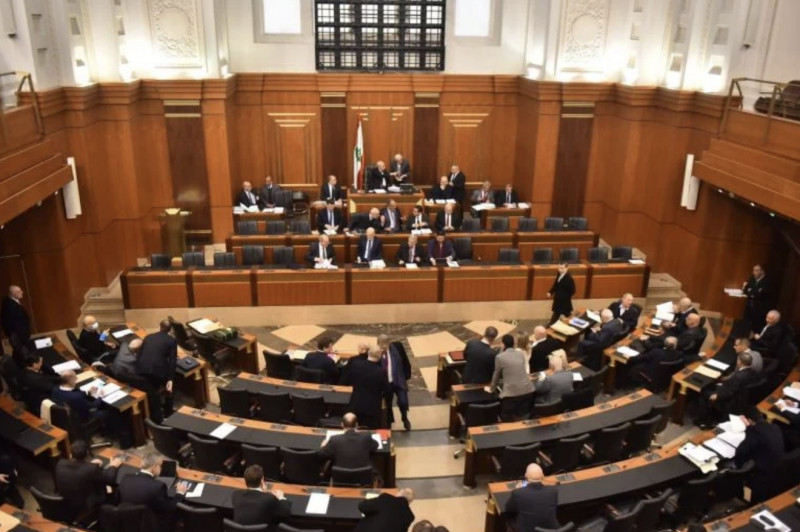
A view of a session of parliament's plenary assembly. (Credit: Mohammad Yassine)
The site’s name, LAPOLeb, is a contraction of “Legal Agenda Parliamentary Observatory,” a local non-governmental organization chaired by lawyer Nizar Saghieh.
The NGO created the platform in mid-March. It is dedicated to promoting the rule of law by monitoring the actions of the legislative, administrative and judicial powers. Its mission is to ensure these actions are consistent with citizens’ fundamental rights and freedoms.
LAPOLeb.com is set to be officially launched on May 2. Its primary objective is to inform Lebanese people about legislative functions and governmental oversight, duties entrusted to MPs in representing their respective constituents and the broader citizenry.
The content on the website pertains to the ongoing parliamentary term (2022-2026) and extends to the preceding one, marked by the onset of the current economic crisis.
Fadi Ibrahim, a Legal Agenda member, told L’Orient-Le Jour, “We have been gathering data [surveys, statistics, etc.] since 2019.” He emphasized that this data is sourced from parliamentary minutes, other official documents and unofficial yet reliable channels.
The platform details parliament’s recent work, encompassing ongoing bills and proposals under deliberation, along with the most recent laws ratified and published in the official gazette.
Additionally, it presents inquiries to the government as a component of executive oversight, including the identities of the MPs or parliamentary blocs that initiated them.
Attendance
To assess the performance of MPs and blocs, the platform surveys their attendance at parliament sessions and parliamentary committees. It also provides the number of bills they have introduced out of the 337 currently under consideration.
Bilal Abdallah of the Progressive Socialist Party (PSP) stands out as one of the MPs with the highest number of proposed bills. Others, such as Paula Yacoubian (independent), Georges Okais and Georges Adouan of the Lebanese Forces (LF), along with Sagih Attieh of the National Moderation bloc, are also recognized for their active participation in this regard.
Among parliamentary committees, the Finance and Budget Committee leads with the highest number of meetings, followed by the Administration and Justice Committee, the Health, Labor, Social Affairs Committee and the Economy Committee.
The Information Technology Committee ranks lowest, followed by the Agriculture and Tourism Committee. The Committee for Displaced Persons’ Affairs stands last.
In a video broadcast introducing the Lapoleb.com website, Ghida Frangieh, a member of the Legal Agenda, said the electronic platform will document MPs’ opinions during debates on law voting and amendments.
Frangieh said that monitoring and analyzing these viewpoints, along with other positions and actions, will help prevent the activities of Parliament from being obscured.
“This serves as a means to bolster transparency, oversight and accountability, while also mitigating populist rhetoric and slogans,” she added.
Similarly, Ibrahim believes that the platform, grounded in figures and facts, will incentivize MPs to take on greater responsibility.
“Those whose active engagement in parliamentary duties is underscored by the data will likely be further motivated to persist in their endeavors,” he said.
Conversely, Ibrahim hopes MPs with less favorable results in these assessments will be spurred to enhance their involvement. Moreover, he said that MPs who disregard the reports and other studies disseminated on the site “will likely encounter reluctance from their constituents when seeking reelection in the future.”
LAPOLeb.com features transcriptions of critical studies by the Legal Agenda regarding ongoing developments, such as the potential postponement of municipal elections.
Additionally, the Legal Agenda publishes its analyses on pending legislation, including matters concerning judicial independence, administrative justice and military justice reform.
This article was originally published in L'Orient-Le Jour. Translated by Sahar Ghoussoub.